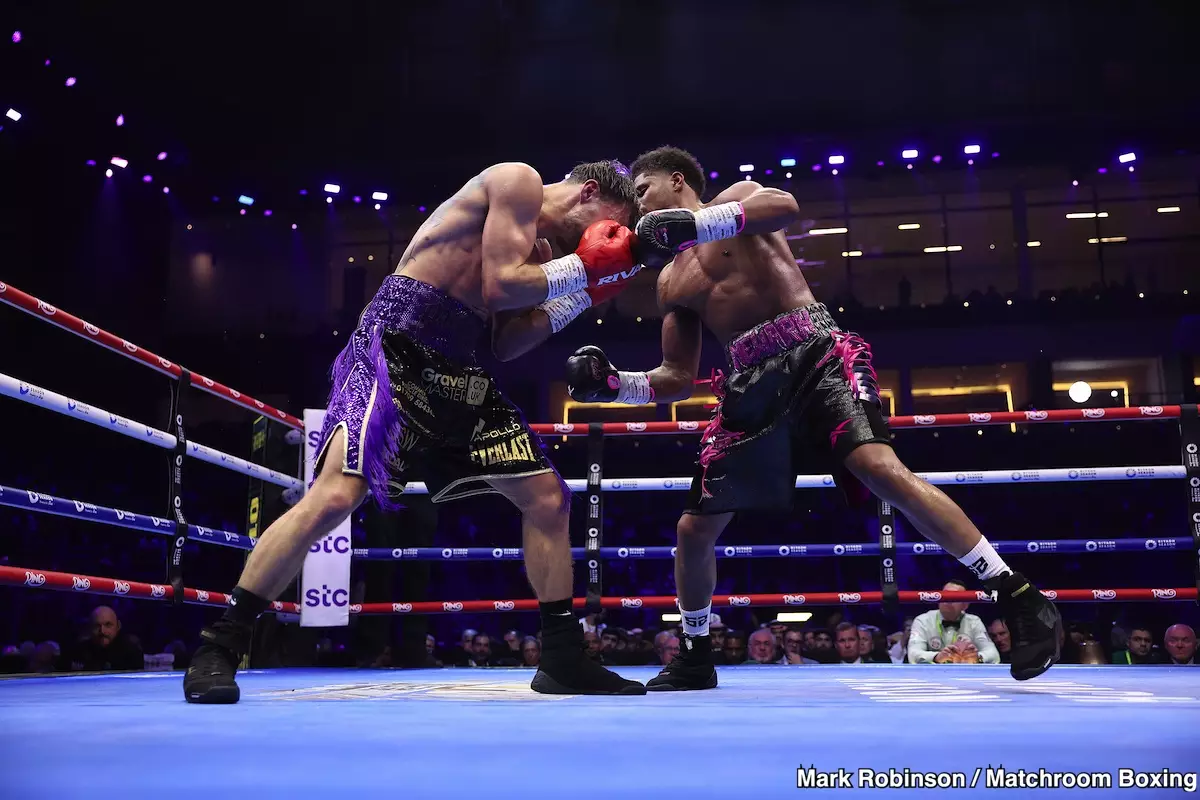Shakur Stevenson, a rising star in the lightweight division, recently showcased his prowess in the ring with a ninth-round technical knockout of Josh Padley in Riyadh. While Stevenson’s performance boasted a near-flawless technical execution, the validity of his claims regarding the quality of his opponents raises pressing questions. In this article, we will delve deeper into the implications of Stevenson’s fights, his choice of opposition, and what this means for both his career trajectory and the future of lightweight boxing.
Stevenson, now holding an unblemished record of 23 wins—11 by knockout—has impressively defended his WBC lightweight title. However, one must scrutinize the caliber of opponents he has faced since moving up to lightweight in 2023. His latest opponent, Josh Padley, came into the fight with just one noteworthy opponent on his record and simply appeared overwhelmed. The disparity in experience and skill level posed a significant imbalance in the bout, rendering it somewhat unremarkable.
Critics are justifiably concerned that such a mismatch does not reflect the level of competition that fans expect from a champion like Stevenson. His previous fights reveal a pattern: aside from a notable encounter with Edwin De Los Santos, the majority of his opponents have been of questionable caliber. There are evident deficiencies in the matchmaking, leading fans to ponder whether Stevenson is being overly protected at this stage in his career.
Stevenson’s post-fight comments exhibited pride in his ability to avoid serious damage during the match, as he expressed, “I barely got touched.” While it’s undoubtedly commendable to exhibit such defensive skills, one has to wonder whether a champion should be triumphing against less formidable challengers. During interviews, he downplayed concerns regarding Padley’s lack of resistance, claiming his main focus was on getting back into his rhythm after a previous fight.
However, this brings to light another criticism: if his priority lies in shaking off ring rust, it implies that he isn’t facing the caliber of opponents who could genuinely challenge him. The notion of regularly cleaning out the division’s lower ranks does little to enhance Stevenson’s legacy. For a boxer with aspirations to be regarded as an all-time great, the lack of formidable challenges in recent outings could hinder his future standing in the sport.
Questionable Choices: The Frustration of Selective Matchmaking
Shakur Stevenson’s selective matchmaking has been laid bare through his remarks about Floyd Schofield, who pulled out of a proposed fight due to illness. Stevenson’s emotional response indicated his frustrations with Schofield avoiding a bout that could have been a significant step for both parties. This situation highlights a broader issue in boxing where fighters may choose lesser opponents to maintain undefeated records or face easier challenges.
Furthermore, when discussing potential opponents like Cuban heavyweight Jadier Herrera, there’s a palpable sense that Stevenson’s team opted for safer routes. The fear of losing to a more skilled opponent likely played a role in his choice to fight Padley instead. While the temptations of financial security and an undefeated record may be enticing, they ultimately create a diluted experience for fans, who yearn to witness genuine bouts of skill and endurance.
Boxers in Stevenson’s position ought to advocate for more significant challenges in their careers, as this not only elevates personal accolades but also enriches the boxing landscape. Promoter Turki Alalshikh, who has showcased Stevenson, must take accountability for the fighters the champion faces moving forward.
For the health of boxing and its legacy, it’s imperative that champions seek worthy opponents, embrace tougher challenges, and accumulate a robust set of experiences that truly define them as athletes. For Shakur Stevenson, the transition needs to occur sooner rather than later. If he desires to cement his place as one of the greats, he cannot afford to linger in the realm of feeble competition.
Shakur Stevenson represents immense talent and potential in boxing. Yet, his current trajectory, characterized by easy victories against lesser opponents, begs for a reassessment. The lightweight champion must consider not only his immediate success but what legacy he hopes to build in the sport. Reinvigorating his fight selection by taking on tougher competition will not only serve his development but restore faith in fans eager for thrilling boxing contests. The next steps in his career could very well shape his upcoming narrative in a flotilla of great fighters; the time for selective matchmaking must come to an end.


Leave a Reply